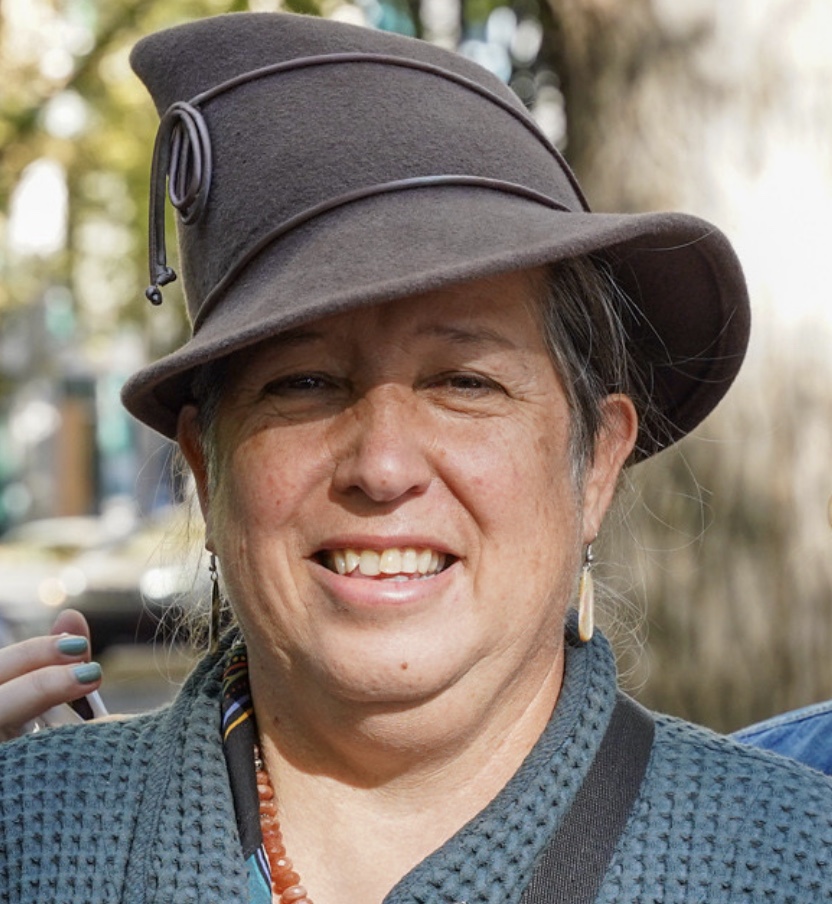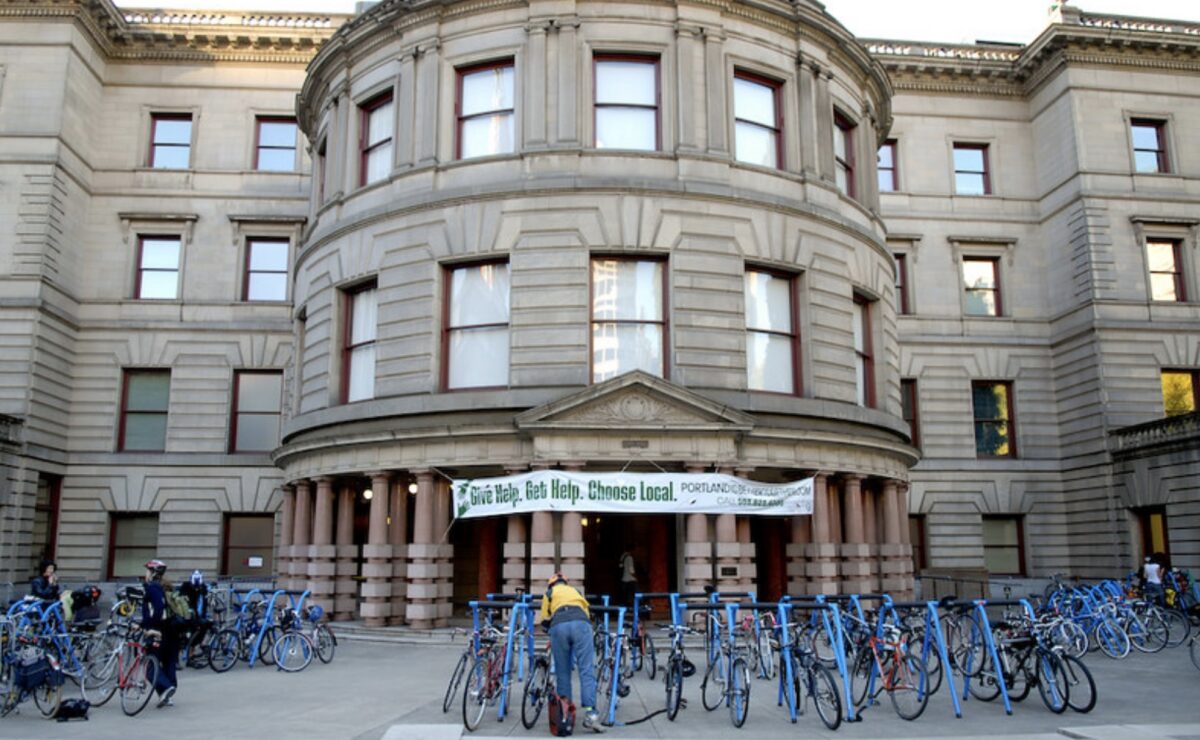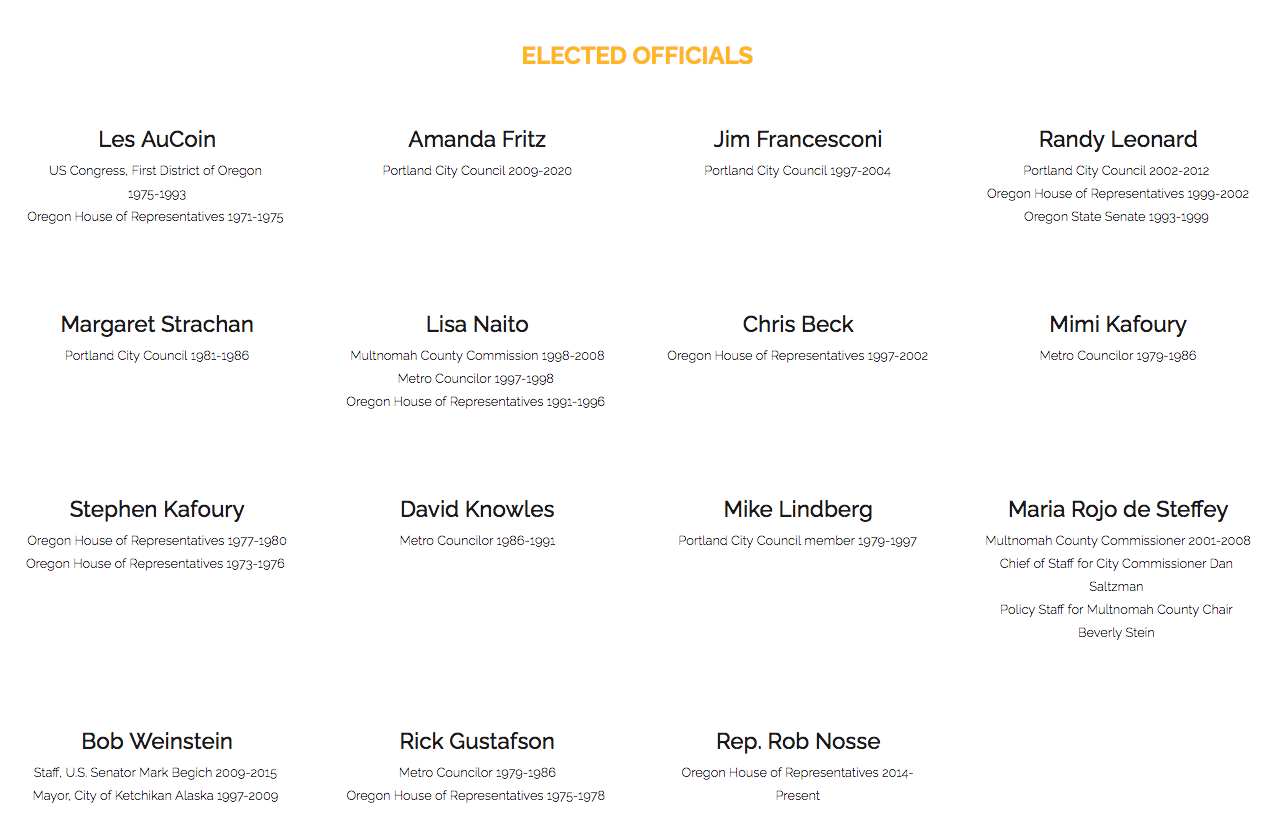Aaaaaannnnnnnd…they’re off! Endorsements takes the lead out of the gate, one length, two lengths. Here’s come Money! Money breaks out of the pack. It’s Endorsements, Money, Endorsements, Money, neck-and-neck heading into the final curve. What’s this? It’s Strategy! Strategy is closing the distance …
There’s nothing like a good horse race, and Measure 26-228 (the charter reform measure on November’s ballot) is the one to watch. Sometimes a race is so interesting it cuts through campaign talking points and sound bites to reveal the true underlying power struggle. This is one of those times.
At stake is how Portland governs itself and elects its local officials. In previous articles, BikePortland covered the broad issues and history which have brought Portland to this juncture, and we have explained the nitty-gritty of how ranked choice voting in multi-member districts works.
This post limits itself to describing how things stand with the campaigns—endorsements, money, strategy.
Endorsements
Nowhere is the difference between proponents and opponents of the charter reform measure more obvious than in the (lack of) competition for endorsements.
Portland United for Change (PUC), the lead proponent of reform, has rounded up the endorsements of 50 civic, community and union organizations—the Portland branches of League of Women’s Voters, the Urban League, the ACLU, the NAACP, Common Cause…The City Club, Apano, the Street Trust, Verde, OPAL… the Portland Association of Teachers, Service Employees Union Local 49, LiUNA (Laborers’ International Union of North America) Local 737.
And the other side? Partnership for Common Sense Government (PCSG)? Their web site does not list any endorsements by civic groups. It’s a shutout. Their supporters are all individuals—retired politicians and city staff—and also influential and wealthy Portlanders.
PCSG was founded early this summer by defeated City Council candidate Vadim Mozyrsky, and former Mayor Bud Clark aides Chuck Duffy and Steven Moskowitz. I wanted to contact them to ask about endorsements and fundraising, but wasn’t able to find any contact information on their web page. That in itself answered most of my questions.
Communications Strategist Damon Motz-Storey of Portland United for Change, explained that the reform opponents are “used to being on the inside of halls of power, with access and connections, but they don’t have much of a base,” which might partly explain the endorsement asymmetry.
But it also seems that PCSG might be getting out-hustled by the younger group of politicos at PUC.
Money
As of September 27th, Portland United for Change outperformed Partnership for Common Sense Government in the money race.
PUC has reported $205,000 cash and in-kind contributions and, according to an email from the group earlier this month, another $200,000 in pledges for a total of roughly $400,000 in cash, in-kind support, and pledged donations.
Their top contributors are Oregon Ranked Choice Voting, FairVote, Building Power for Communities of Color, Northwest Health Foundation, and North Star Action Center. The top donor, Oregon Ranked Choice Voting, contributed $50,000.
PCSG has raised less than a fifth of what PUC has, or about $38,000. PCSG lists few expenditures, which might be why their web page is rudimentary and there isn’t anyone home to answer the phone.
What is going on here?
There is a third political action committee (PAC), the Ulysses PAC, formed last year by City Commissioner Mingus Mapps. The Mapps and Mozyrsky PACs originally looked like a good cop/bad cop team. Mozyrsky’s Partnership for Sensible Government would directly oppose the measure, while the Ulysses PAC would host public forums featuring specialists to educate Portlanders. This would allow Mapps to position himself above the fray, as a moderate just trying to help the public.
The Ulysses PAC reported raising roughly $150,000 in contributions. Their top donor is Schnitzer Properties LLC, which gave $25,000. And they have numerous expenditures, mainly to strategists and consultants.
Vote Splitting Strategy
The Ulysses PAC educational forums do not seem to have happened. The main opposition strategy now appears to be to split the pro-reform vote with an alternative proposal which the Ulysses PAC will release next week. The goal is to tempt voters to reject the current ballot measure in favor of the alternative, which Mapps promises to put on the Spring 2023 ballot.
With the Ulysses PAC releasing their alternative plan just a couple of weeks before the November ballots are mailed, little time remains for debate, analysis or discussion. Obstruction of a two-year public process looks like the point of this 11th-hour timing.
It is noteworthy that the Charter Reform Commission performed extensive community outreach and listening sessions, including 81 public meetings, 34 policy discussions with community organizations and 111 briefings and presentations.
The Ulysses PAC developed their proposed alternative draft in-house with the help of the opinion research firm DHM Research. DHM conducted two focus groups of ten people each, and also some polling.
In other words, the current ballot proposal is the product of an open process. The proposal waiting in the wings is the work of a select group of people and their consultants.
Where’s the critique?
What has not been forthcoming from the opponents of Measure 26-228 is a substantive critique of the Charter Review Commission’s work.
The commission’s decision to propose a Ranked Choice Voting method with multi-member districts was informed by an analysis of Portland voting and demographics by a nationally-acclaimed research group, the MGGG Redistricting Lab.
The MGGG research is at the core of the voting proposal, yet opposition never mentions it. If there were substantive criticism, it would be addressing this research head-on. Particularly since the research evaluated the scheme that the Ulysses PAC has proposed—7 to 9 districts with a single-winner seat—and shows that it will not do the job of increasing representation.
Instead, the opponents rely on spreading fear, uncertainty and doubt (FUD)—it’s too complicated!, voting shouldn’t be rocket science!, 25%!!!, extremism!
The takeaway
That is a snapshot of where the campaigns are today. On Monday, the Oregonian reported results from a new Portland Business Alliance poll showing that 63% of Portland voters planned to support the charter reform ballot measure. But the whole race could escalate in the next few weeks, with an influx of money resulting in television ads and mailers a couple weeks before ballots are due.
Going into the final stretch, however, the proponents of Measure 26-228 look to be several lengths ahead of their opponents.
Disclosure: Lisa Caballero was an early donor to the Ulysses PAC and also donated to the Mingus Mapps city council race.

Lisa Caballero has lived in SW Portland for 20 years. She is on the Transportation Committee of her neighborhood association, the Southwest Hills Residential League (SWHRL) and can be reached at lisacaballero853@gmail.com.
"strategy" - Google News
September 29, 2022 at 01:34AM
https://ift.tt/R9N28r1
Endorsements, money and strategy: A look at the charter reform horse race - BikePortland
"strategy" - Google News
https://ift.tt/eyWgIPS
https://ift.tt/oL5xWVH
Bagikan Berita Ini

















0 Response to "Endorsements, money and strategy: A look at the charter reform horse race - BikePortland"
Post a Comment